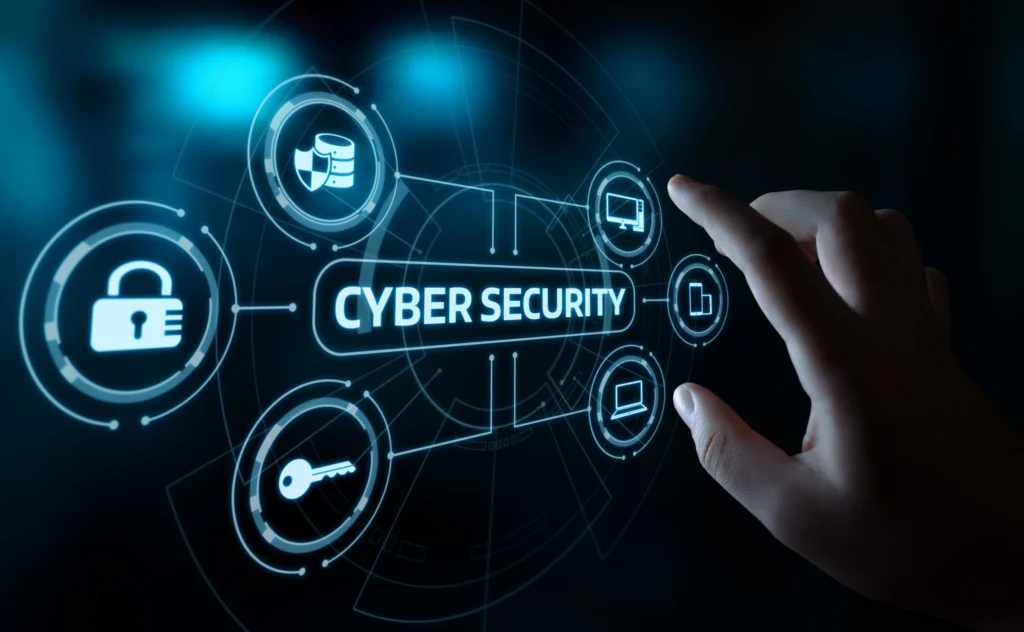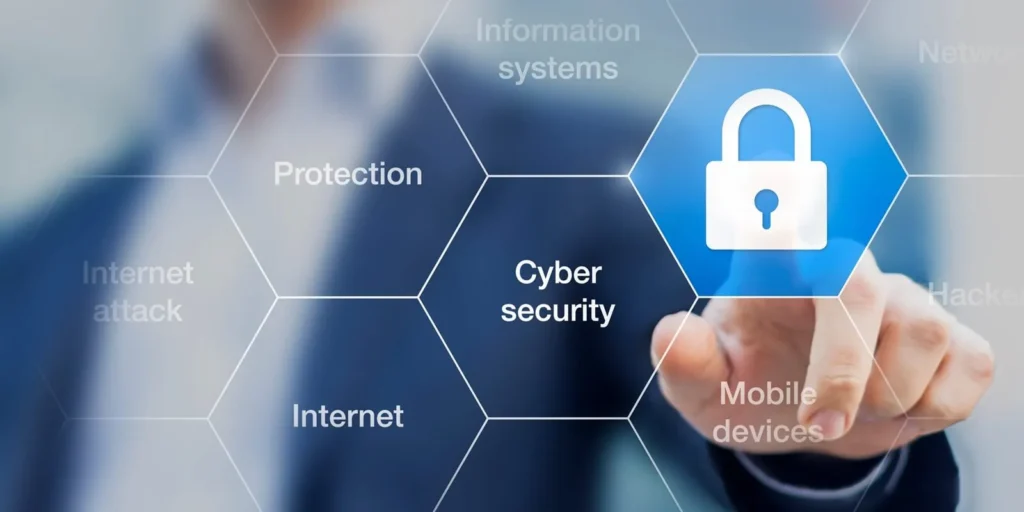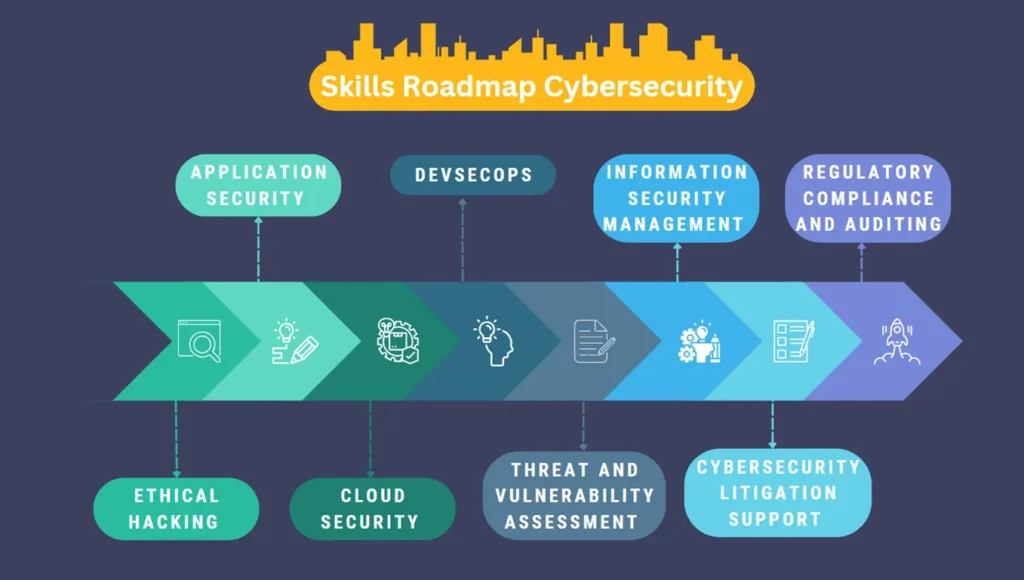? Introduction
With rising cyber threats and increasing data breaches, the demand for skilled Cybersecurity Consultants has surged globally, and especially so in 2025. Whether it’s protecting small businesses or advising large corporations on risk mitigation, freelance Cybersecurity Consultants are playing a crucial role in today’s digital world.
The flexibility and autonomy of freelancing, combined with the need for robust security systems, make this an ideal time to start your journey as a Cybersecurity Consultant. This comprehensive guide will walk you through the qualifications, certifications, essential tools, client acquisition strategies, and income potential of a freelance cybersecurity career.
Whether you’re a seasoned IT pro looking for independence or a newcomer with a passion for security, this roadmap will help you break into one of the most in-demand careers today: becoming a Cybersecurity Consultant.
1️⃣ ? What Does a Freelance Cybersecurity Consultant Do?
A freelance Cybersecurity Consultant provides security expertise on a contractual basis. Their tasks typically include:
- Performing security audits and assessments
- Recommending and implementing security protocols
- Configuring firewalls, anti-virus software, and SIEM tools
- Providing penetration testing and ethical hacking services
- Creating disaster recovery plans
Cybersecurity Consultants work with startups, SMEs, and enterprise-level clients across various industries, including healthcare, finance, e-commerce, and government.

2️⃣ ? Educational Background and Skills Required
To become a Cybersecurity Consultant, a background in IT, computer science, or network engineering is highly beneficial.
Must-have skills:
- Network and information security
- Ethical hacking and penetration testing
- Risk management
- Threat modeling
- Knowledge of regulatory frameworks (e.g., GDPR, HIPAA, ISO 27001)
Soft skills like communication, time management, and client consultation are equally important for freelance work.
3️⃣ ? Recommended Certifications
While not mandatory, certifications give Cybersecurity Consultants credibility and a competitive edge. The top ones in 2025 include:
- Certified Ethical Hacker (CEH)
- Certified Information Systems Security Professional (CISSP)
- CompTIA Security+
- Certified Information Security Manager (CISM)
- GIAC Security Essentials (GSEC)
These certifications validate your skills and help clients trust your expertise.
4️⃣ ?️ Tools and Technologies to Master
A successful Cybersecurity Consultant must be familiar with industry-leading tools such as:
- Wireshark and Nmap for network analysis
- Metasploit and Burp Suite for penetration testing
- Nessus and OpenVAS for vulnerability scanning
- Splunk and ELK Stack for SIEM/log management
Cloud security tools like AWS GuardDuty, Azure Security Center, and Google Chronicle are essential for modern clients.

5️⃣ ? Where to Find Freelance Cybersecurity Jobs
There are several platforms where Cybersecurity Consultants can find freelance gigs:
- Upwork and Toptal for high-paying contracts
- Freelancer.com and PeoplePerHour for entry-level clients
- AngelList and Wellfound for startup gigs
- LinkedIn for professional networking and client outreach
Build a solid online profile, highlight your certifications, and share case studies to attract clients.
6️⃣ ?️ Building an Online Presence
Your online presence as a Cybersecurity Consultant can set you apart. Focus on:
- Creating a professional website or portfolio
- Publishing blogs or thought leadership articles
- Participating in forums like Reddit’s r/netsec or Stack Exchange
- Recording tutorials or breakdowns on YouTube
A strong personal brand helps build trust and authority in the cybersecurity field.
7️⃣ ?️ Crafting a Freelance Contract
A well-written contract protects both you and your client. Essential components for Cybersecurity Consultants include:
- Scope of work and deliverables
- Confidentiality and non-disclosure agreements
- Payment structure (hourly vs. project-based)
- Liability and indemnity clauses
- Timelines and project milestones
Legal clarity enhances your professionalism and avoids future disputes.
8️⃣ ? Pricing Models and Income Potential
Pricing varies by skill, location, and experience. In 2025, average rates for Cybersecurity Consultants are:
- Entry-level: $40–$70/hour
- Mid-level: $75–$120/hour
- Expert: $150–$300+/hour
Project-based pricing is common for penetration tests or risk assessments. Consider offering retainers for continuous monitoring and advisory roles.

9️⃣ ? Managing Clients and Projects
As a freelance Cybersecurity Consultant, you’re responsible for client relationships, reporting, and project management.
Useful tools:
- Trello or Asana for task tracking
- Slack or Microsoft Teams for communication
- Google Workspace for reporting and documentation
- LastPass or Bitwarden for secure password sharing
Transparency, communication, and consistent reporting help retain clients long-term.
? ?️ Specializing in Cybersecurity
Specializing can elevate your career. Popular niches for Cybersecurity Consultants include:
- Cloud security
- Application security
- Threat intelligence
- Identity and access management (IAM)
- Incident response and forensics
Being an expert in a niche increases your marketability and income.
1️⃣1️⃣ ? Working with Agencies and MSSPs
Many Cybersecurity Consultants collaborate with Managed Security Service Providers (MSSPs) or IT agencies.
Benefits include:
- Access to recurring projects
- Shared liability and client acquisition
- Exposure to enterprise-level security environments
Just ensure your contract specifies ownership of intellectual property and non-compete terms.
1️⃣2️⃣ ? Staying Updated with Trends
Cybersecurity evolves fast. To stay ahead, Cybersecurity Consultants should:
- Subscribe to threat intelligence feeds (e.g., Threatpost, KrebsOnSecurity)
- Attend webinars and DEF CON-style conferences
- Join communities like ISC2, OWASP, and SANS
Continuous learning is crucial to maintain relevance in this field.

1️⃣3️⃣ ? AI and Automation in Cybersecurity
AI and automation are reshaping the job landscape. As a Cybersecurity Consultant, understanding tools like:
- AI-based SIEM systems (e.g., IBM QRadar)
- Automated incident response platforms
- Behavioral analytics tools
…can enhance your value to clients and increase your efficiency.
1️⃣4️⃣ ? Opportunities in the UAE and GCC
The Gulf region is investing heavily in cybersecurity. The UAE government mandates strict compliance, making Cybersecurity Consultants in high demand.
In-demand sectors:
- Banking and finance
- Government agencies
- Healthcare and education
- E-commerce platforms
Freelancers with regional experience and Arabic language skills have a competitive edge.
1️⃣5️⃣ ? Roadmap to Starting Your Career
Here’s a step-by-step plan to become a successful Cybersecurity Consultant:
- Get foundational education in IT or cybersecurity
- Acquire certifications (CEH, CISSP, etc.)
- Build a personal brand and online presence
- Start with small freelance platforms or internships
- Develop a strong portfolio with case studies
- Network and find mentors in the industry
- Set up a legal framework and invoicing system
- Upskill continuously to match market trends
Persistence, continuous learning, and professionalism are the keys to long-term success.

? Conclusion
The demand for Cybersecurity Consultants continue to grow in 2025. With cybercrime on the rise, freelance consultants offer businesses a flexible, cost-effective solution to improve their security posture. Whether working remotely or onsite, the opportunities are vast and lucrative.
By following this guide, aspiring Cybersecurity Consultants can confidently navigate the freelance world, build a strong portfolio, and land high-paying clients. From obtaining certifications to choosing the right tools and platforms, every step counts in this rewarding career path.
If you’re tech-savvy, security-minded, and ready to take control of your career, now is the perfect time to become a Cybersecurity Consultant.


One thought on “Cybersecurity Consultant: Ultimate Guide to Building a Successful Freelance Career in 2025”